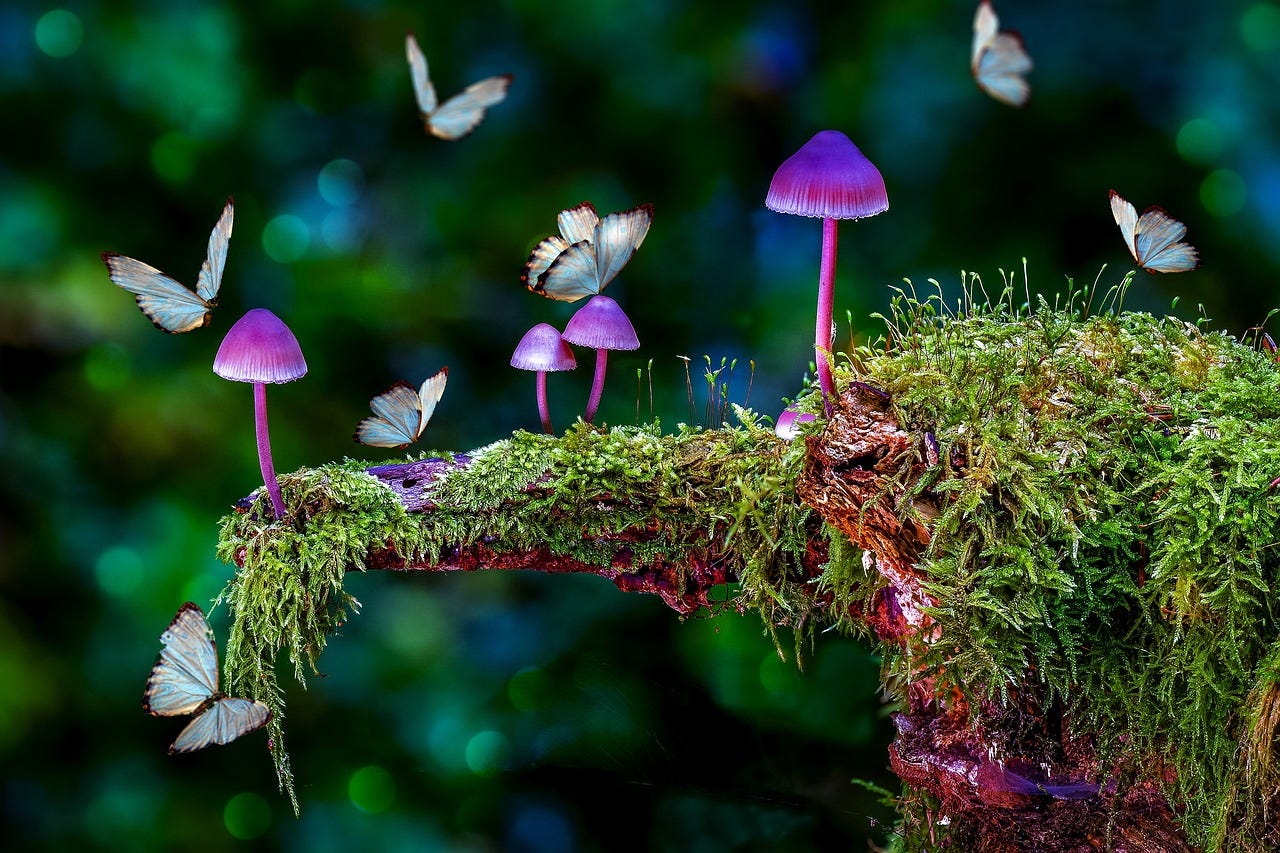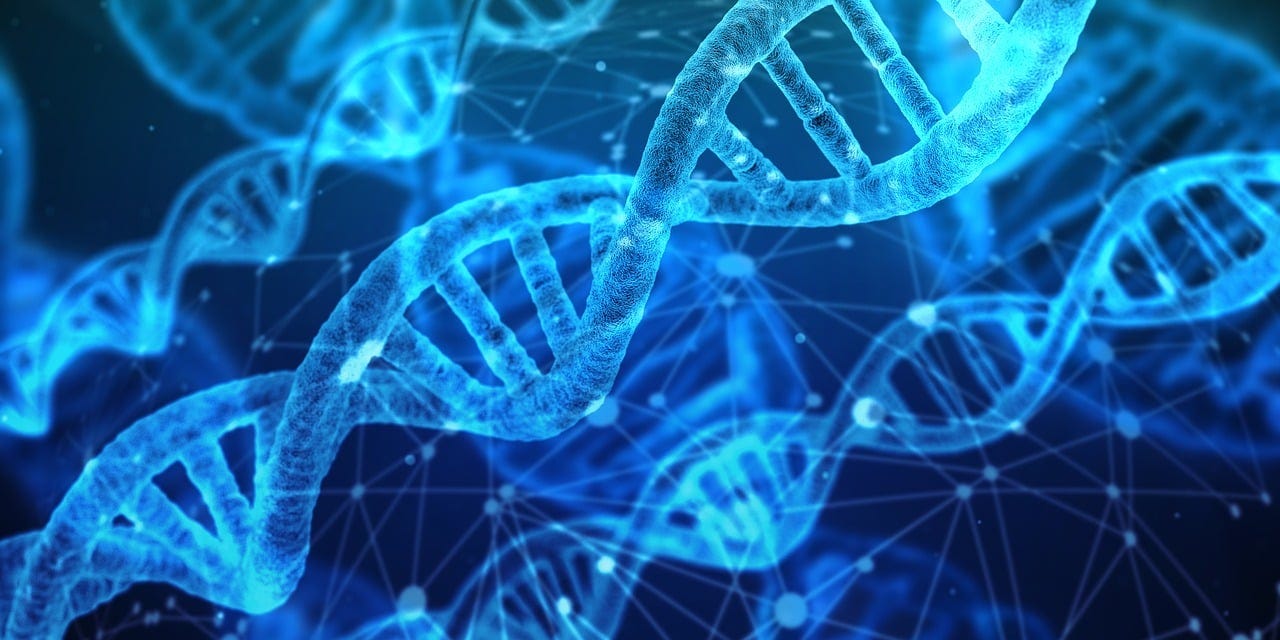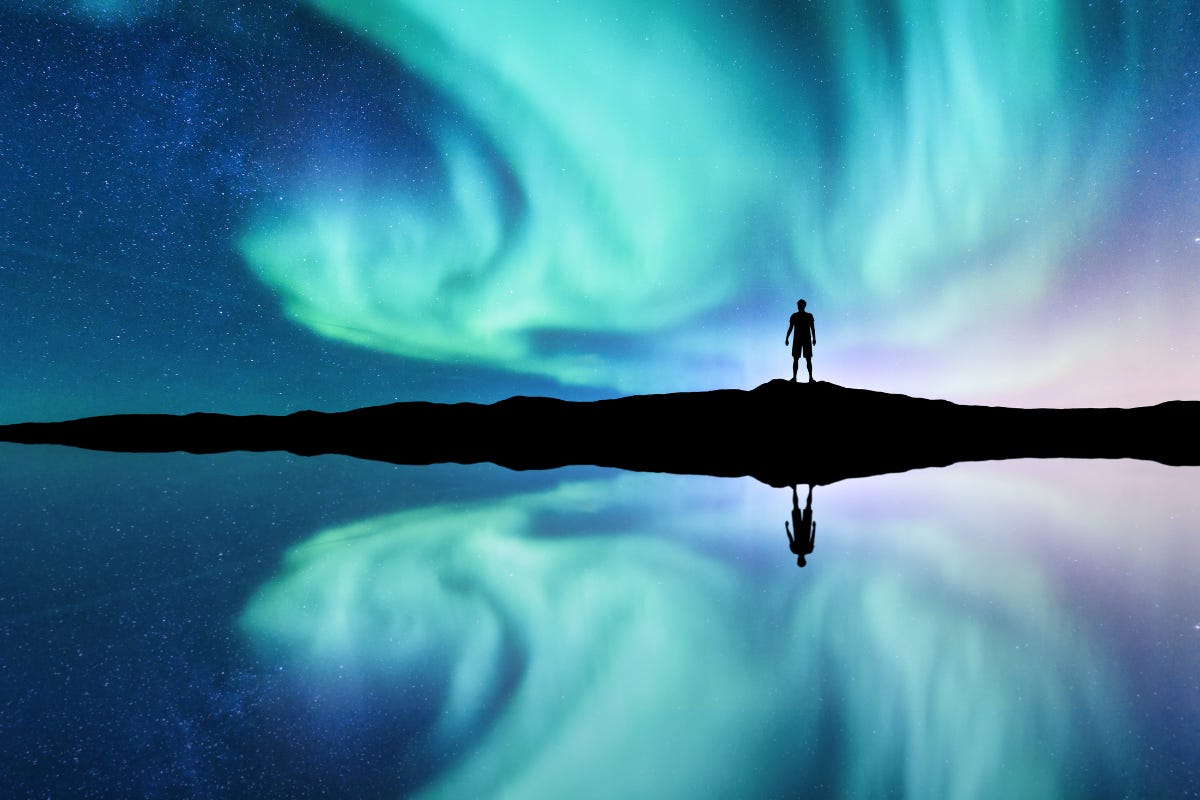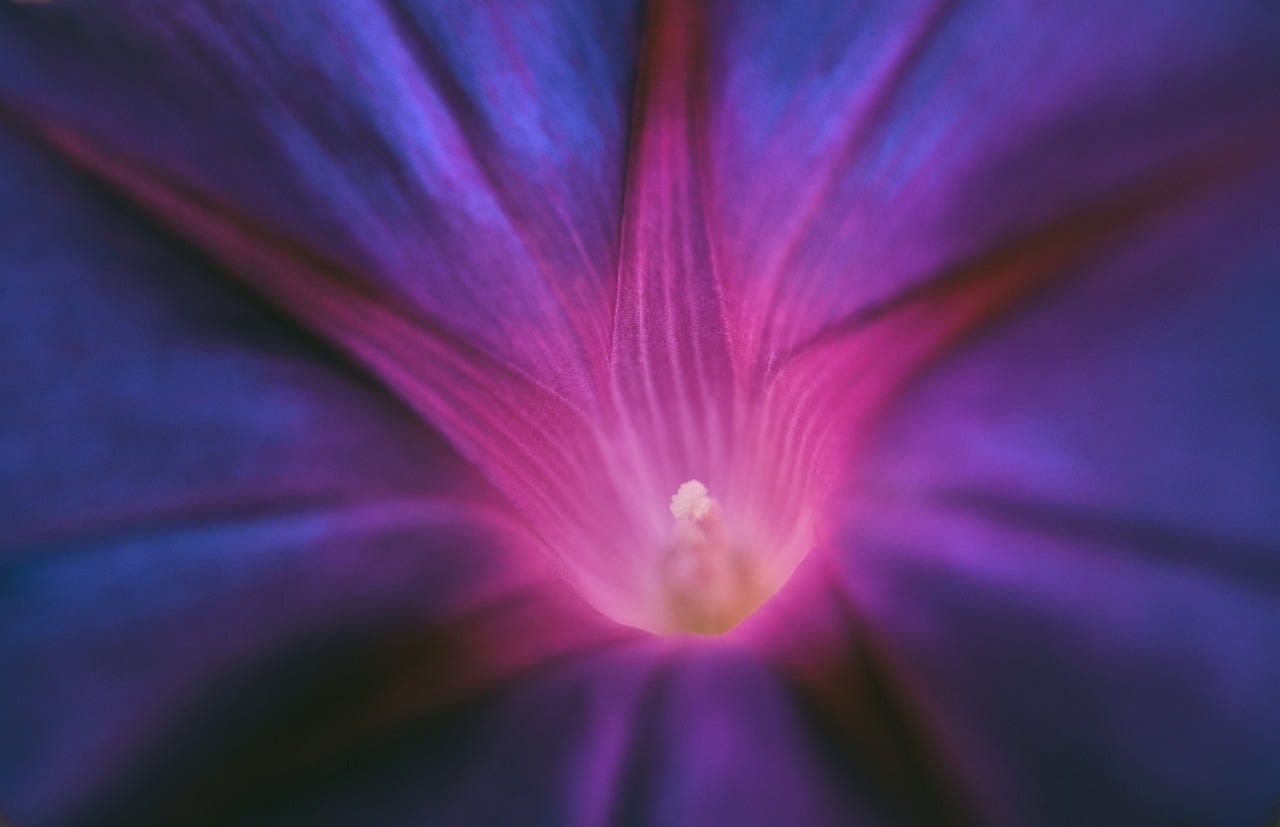Discovering The Enchanted Universe
Reclaiming Our Ancient & Magical Birthright
What place does magic have in the modern world? Surrounded by science and technology, how do we reconcile our longing to reconnect with the enchanted worldview of our ancestors? In our bones and in our hearts, the magical West is still recovering from the pyres of our persecutors. With so much ancestral knowledge lost to the flames and the ages, how do we integrate our inner knowing while still embracing the scientific worldview and logic of our times?
The Ancient Reality of Magic
Magic is ubiquitous. It has appeared in every recorded instance of human culture since time immemorial. Stories of magic are our cultural inheritance—landscapes alive with enchantment and otherworldly spaces only a thin veil from this one, filled with powerful beings beyond count. Humans of the past described their world in mythic detail, every nuance coming alive with imagination and connection.
Whether the healing of an ailment or a change in weather patterns, our ancestors once experienced magic in Everything. They looked at the plants and animals growing around them and saw a vast web of interconnection. They learned to use medicines and understood them as gifts from Nature. They lived at the mercy of the seasons, relied on the land to survive, and had only the stories of those who came before to inform their understanding of the world.
Ancient humans lived by their own experience and the experience and wisdom of those who came before. There were no microscopes or measuring systems to explain the movement of heavenly bodies or the temperature of the human body during a fever spike. There were no text books or science experiments, no knowledge of atoms or alphabets, not even the concept of logic or reason. For generations beyond count, we were creatures of feeling and instinct, story and tradition.
It must have been exhilarating and exhausting, living in a world so beautiful, vibrant, unpredictable, and dangerous at once. Through the centuries, it makes sense that we naturally searched for explanations to help us tame that great Unknown. It took millennia of trial and error, misbelief, disbelief, failure, and experimentation to arrive where we are today.
But have we lost something vital on the road to discovery?
A Lost World of Enchantment
From time immemorial, all the way up until about 500 years ago, human beings viewed life through a lens of enchantment. We prayed over illness, offered tithes to buy our way into heaven, made blood offerings in hopes of winning favor and fortune, exorcised demons, let ill humors escape from the body through the blood, and practiced a thousand other important rituals to keep the unseen world at bay. Every aspect of life was tinged with the surreal—the supernatural—as we think of it today. Though it may seem strange or even silly to believe in such superstitions, for our ancestors, it was as natural and obvious as the understanding of germs and particles is to us now.
Just as we do, they lived surrounded by the cultural understanding of their times. When we’re raised to see the world from a certain perspective, it can be difficult—even impossible—to step outside of that point of view. To see beyond the common sense of our culture, we must begin to peel back the layers our daily lives to look at invisible lessons we’ve been taught.
The Scientific Revolution and the subsequent Age of Enlightenment fundamentally changed the way humans view life on Planet Earth. The rise of the scientific method gave us the means to test hypotheses and verify or disprove previously common beliefs. Slowly, over the course of the last few hundred years, we codified our lives— scientific experiments, mathematical equations, and taxonomical categorizations took the place of supernatural explanations.
Science demystified the natural world with sophisticated theories and catalogues of information. Mystical healing became the science of medicine, alchemy became chemistry, astrology became astronomy, and hitherto impossible feats—like flying— became everyday occurrences through the mastery of physics. New learning became available to us, but at the same time, the sense of connection, sentience, and interdependence the natural world had always held for humankind began to dim. Even with all of this information at our fingertips, there was something missing that science could not replace.
Through all the hardship of the ancient world, our forebears had something that has been lost through the ensuing ages—a deep sense of belonging to the world. An awareness of our animal essence. The wild vulnerability of knowing—in our bones—how deeply unsafe it is to be alive on Planet Earth, where the only escape is pain and death.
Reality is unsettling for modern humans, but it’s the stark and unabashed awareness of our intimate dance toward death, in partnership with all of creation, which gives our lives meaning. In this inevitable truth (which we do everything to avoid), we find not only deep solace, but a reclaimed enchantment. The world—though it be made up of waves and particles which we can name and classify—takes on new dimension, rich with aliveness and infused with magic.
Synthesis of Disparate Elements
Looking into the past we find magic and superstition; trapped in the present we are surrounded by science and technology, but our future—if it is to be worthwhile—must contain elements of both. It would be foolish to ignore modern science, pretending we don’t have the tools and information at our fingertips to explain myriad mysteries of this world. Yet somehow, we must also reclaim the magic of our birthright—for which many of us feel a deep, intuitive longing.
Human consciousness is capable of perceiving wider worlds of existence than that which our scientific instruments show us. Though science can often explain the physicality of phenomena such as love or the transcendental states achieved through meditation, the experience of them feels like something supernatural. For ages untold, humans have recounted stories of such profound personal experiences, placing a value and gravitas on the subjective world that has become uncharacteristic of our times. What would happen if we valued these personal moments of transformation with the same weight as events and phenomena in the external world?
Viewed through this lens, a world of wonder and magic doesn’t conflict with scientific reality at all. Instead, our libraries of information would fuel imagination, allowing us to dive ever-deeper into new experiences. The key to re-membering the enchanted universe of our ancestors is simply to metre en valeur our own subjective experience—that is, to once again hold it in high esteem.
For science and magic to co-exist, we must allow ourselves to explore our own deepest truths—valuing them wholly and completely as an important personal experience. But now that we have objective tools to study the universe, there is one thing we must do differently from the past. Understanding that there is a scientific reality beyond our subjective experience, we can no longer justify imposing our personal truth, perspective, or beliefs on others.
The ancients understood much better than we do now the importance of experiential reality on the human psyche, but they failed to understand the personal nature of their experience. Eons of bloodshed, entire religions created upon foundations of righteousness have taught us to be wary of anything masquerading as truth that cannot be verified. Yet when we say that spiritual experience is nothing more than imagination—or worse, that it doesn’t exist—we rob ourselves of the profound transformation and insight available through this way of learning and knowing about the world. Whether or not it’s understood by science, human consciousness has a phenomenal capacity for otherworldly participation, and this undeniable aspect of the human condition adds depth and meaning to our lives.
Allowing science to do its job of classifying and organizing the world while still placing immense personal value on supernatural experience reconciles the ancient and modern worldviews. It resolves a primary conflict that keeps us from stepping into an enchanted view of the universe and keeps us from being willing to live full, open, and unabashedly magical lives. With science squarely on our side, it’s time to explore what magic looks like in the everyday world and the secret, hidden reason we avoid it.
Experiencing Magic
For just a moment, imagine a tree in the midst of a wild forest catches your eye. You pause to look at it more closely. You see the rough-skinned bark climbing determinedly up it’s trunk. You stand and watch as the tall branches wave in the breeze overhead, shimmering green in the afternoon sun. Beneath your feet, gnarled roots dig deeply into the earth, thirsty for nutrients. Looking at that tree, what is your experience?
Is your reaction to that tree fundamentally scientific? Does your mind automatically identify the genus from the bark pattern? Do the glimmering leaves casting dappled sunlight over your face inspire you to calculate the rate of photosynthesis occurring? Do the roots make you wonder about the density of nutrient uptake from soil pockets? Or is something else occurring in that interaction?
Even if you’re a super science geek and enjoy pondering the world around you through that lens, there’s still something greater happening. Beyond the physical and measurable, beyond the rational and quantifiable, there’s an experiential reality of the magic of creation.
The trick for modern humans is that we have to be quiet; we have to occupy our physical, animal bodies, not just our thinking minds. We have to let go of distraction and reconnect with Nature, allow ourselves to relax into the world around us. Basically, we have to do all the things our ancestors did naturally! When we let go of everything that’s not actually present in moment, a great connection with the world around us arises… a greater connection with ourselves becomes possible. This can be a breathtaking experience, but it can also be utterly terrifying.
Embracing the Unknown
With so much information at our fingertips, homo sapiens has become more and more uncomfortable being immersed in a vast and mystical universe. We’ve grown afraid of the dark, uncomfortable in our skin, anxious without understanding the cause. We no longer want to know what’s out there, preferring to hide behind our screens pretending science can account for and predict our reality.
The cold, hard truth is—there’s still so much we don’t know. That can be a difficult place to stand for modern humans, who find comfort in understanding our world. It can feel destabilizing, or even disturbing, to imagine a magical world of infinite possibilities co-existing with our rational realities. My engineer husband once told me that my worldview simply has too many variables to compute. For him—as for many modern humans—an enchanted universe feels like a waking nightmare. But for me, a sterile world of predictable equations is devoid of life, missing something crucial to my existence.
Many of us sense a deeper reality in our bones. We seek a way to connect with what we know instinctively must be there. Those of us who are willing to brave the great Unknown come to find that modern humans have shoved something vital under the rug—a vast, interconnected web of creation to which we belong. Finding the courage to receive our magical birthright at last, we discover that we are supremely small… utterly vulnerable… yet incalculably important. We come face to face with the source of the anxiety that has crept into every level of our society. In that dark place full of Mystery and wonder, we find—not terror, but a unimaginable joy that we are indeed not alone in this grand, mystical, and Unknown universe.
Will you allow yourself to feel the beauty and terror of a magical life?
I’d love to know 😉










